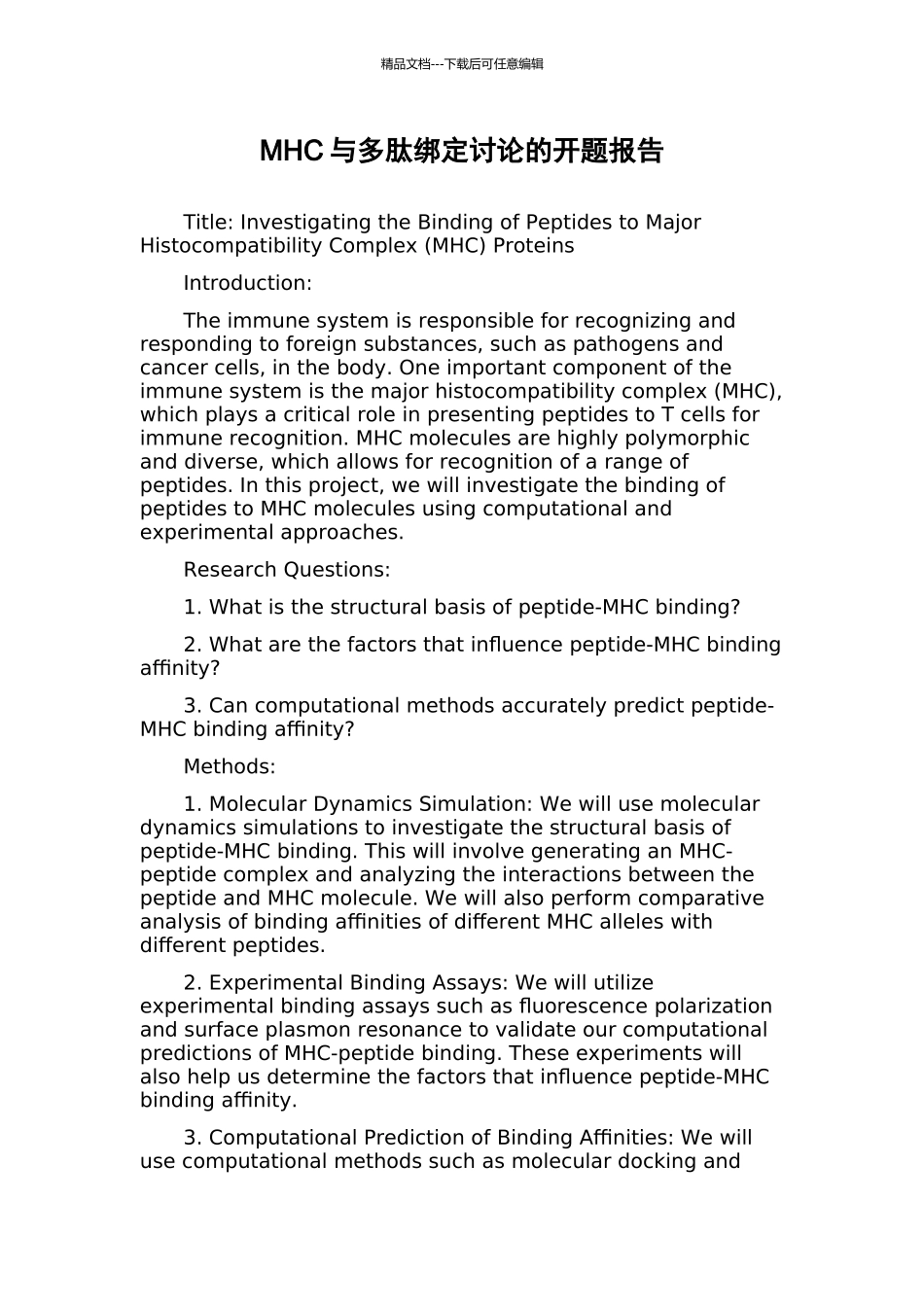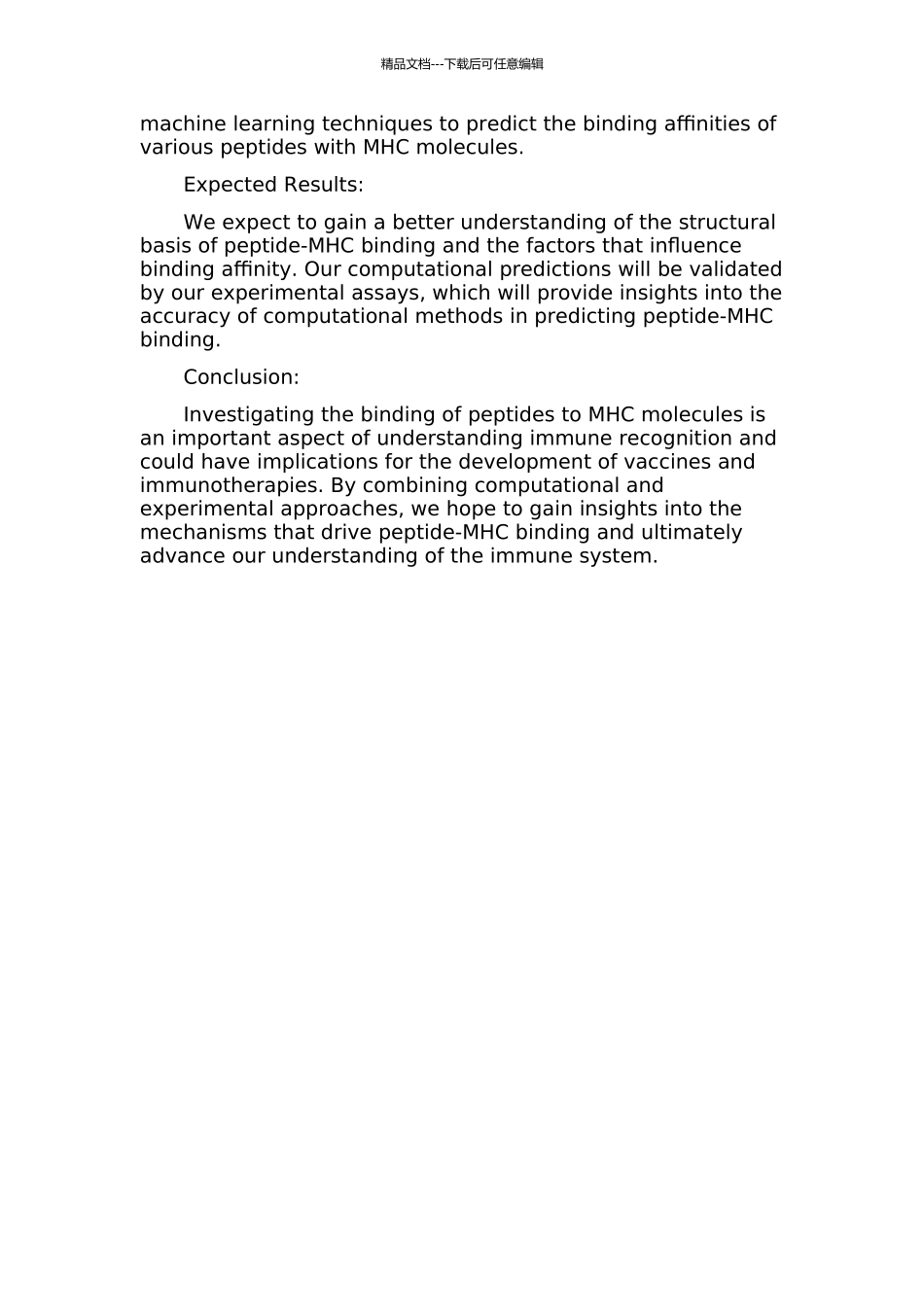精品文档---下载后可任意编辑MHC 与多肽绑定讨论的开题报告Title: Investigating the Binding of Peptides to Major Histocompatibility Complex (MHC) ProteinsIntroduction:The immune system is responsible for recognizing and responding to foreign substances, such as pathogens and cancer cells, in the body. One important component of the immune system is the major histocompatibility complex (MHC), which plays a critical role in presenting peptides to T cells for immune recognition. MHC molecules are highly polymorphic and diverse, which allows for recognition of a range of peptides. In this project, we will investigate the binding of peptides to MHC molecules using computational and experimental approaches.Research Questions:1. What is the structural basis of peptide-MHC binding?2. What are the factors that influence peptide-MHC binding affinity?3. Can computational methods accurately predict peptide-MHC binding affinity?Methods:1. Molecular Dynamics Simulation: We will use molecular dynamics simulations to investigate the structural basis of peptide-MHC binding. This will involve generating an MHC-peptide complex and analyzing the interactions between the peptide and MHC molecule. We will also perform comparative analysis of binding affinities of different MHC alleles with different peptides.2. Experimental Binding Assays: We will utilize experimental binding assays such as fluorescence polarization and surface plasmon resonance to validate our computational predictions of MHC-peptide binding. These experiments will also help us determine the factors that influence peptide-MHC binding affinity.3. Computational Prediction of Binding Affinities: We will use computational methods such as molecular docking and 精品文档---下载后可任意编辑machine learning techniques to predict the binding affinities of various peptides with MHC molecules. Expected Results:We expect to gain a better understanding of the structural basis of peptide-MHC binding and the factors that influence binding affinity. Our computational predictions will be validated by our experimental assays, which will provide insights into the accuracy of computational methods in predicting peptide-MHC binding.Conclusion:Investigating the binding of peptides to MHC molecules is an important aspect of understanding immune recognition and could have implications for the development of vaccines and immunotherapies. By combining computational and experimental approaches, we hope to gain insights into the mechanisms that drive peptide-MHC binding and ultimately advance our understanding of the immune system.

